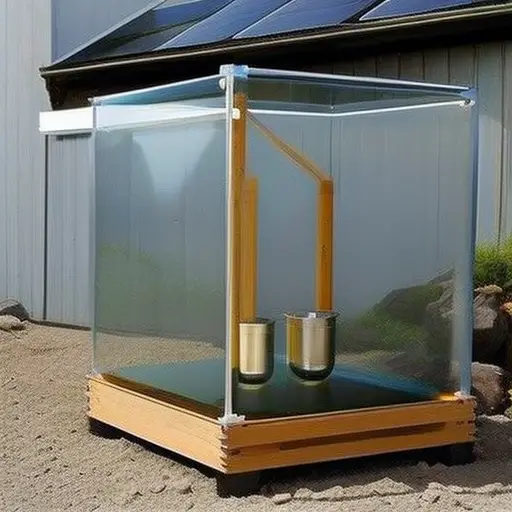The Importance of Hydration and Finding Safe Water Sources

In a world where water is the elixir of life, it symbolizes vitality, health, and well-being. The importance of hydration cannot be overstated, as it plays a pivotal role in maintaining our body’s functions.
However, the quest for safe water sources is equally crucial in ensuring our overall health. In this article, we will delve into the science of hydration, explore the benefits of staying hydrated, and examine the safety of tap water versus bottled water.
Stay tuned for valuable insights and tips on securing safe water consumption.
The Science of Hydration
Hydration is a physiological process involving the absorption and retention of water in the body. Adequate water consumption is vital for overall health and well-being. Water is essential for various bodily functions, including regulating body temperature, lubricating joints, transporting nutrients, and removing waste products.
Proper hydration offers numerous benefits. Firstly, it helps maintain the balance of bodily fluids, which is crucial for optimal cellular function. Secondly, it supports cardiovascular health by enabling the heart to pump blood more efficiently. Additionally, hydration promotes healthy digestion, as water aids in the breakdown and absorption of nutrients.
Furthermore, staying hydrated enhances cognitive function. Research has shown that even mild dehydration can impair cognitive performance, affecting memory, attention, and mood. Adequate hydration also supports physical performance during exercise. It helps prevent fatigue, cramping, and overheating, allowing individuals to perform at their best.
The recommended water intake varies depending on factors such as age, sex, activity level, and climate. However, a general guideline is to drink at least 8 cups (64 ounces) of water per day. It is important to note that water needs may increase in hot weather or during intense physical activity.
Benefits of Staying Hydrated
Staying hydrated offers numerous health benefits, making it essential for overall well-being. Adequate hydration helps maintain proper bodily functions, such as regulating body temperature and supporting digestion.
Additionally, staying hydrated can improve cognitive function, boost energy levels, and enhance physical performance.
To ensure optimal hydration, it is important to choose safe and reliable sources of water, such as filtered tap water or bottled water from reputable brands.
Health Benefits of Hydration
Maintaining proper hydration levels offers numerous health benefits, including increased energy and improved cognitive function. When it comes to hydration and exercise, staying adequately hydrated is crucial for optimizing performance and preventing dehydration-related issues. Here are three key health benefits of hydration:
-
Enhanced physical performance: Being dehydrated can lead to fatigue, reduced endurance, and decreased strength during exercise. Drinking enough water before, during, and after physical activity helps maintain optimal hydration, allowing your muscles to work efficiently and improving overall performance.
-
Improved brain function: Dehydration can impair cognitive function, including memory, attention, and mood. Studies have shown that even mild dehydration can negatively affect cognitive performance. By staying hydrated, you can support optimal brain function, enhancing your ability to think, concentrate, and make decisions.
-
Optimal body temperature regulation: Sweating is the body’s natural way of cooling down during physical exertion. Adequate hydration helps regulate body temperature, preventing overheating and reducing the risk of heat-related illnesses.
As we delve into the importance of finding safe water sources, it is essential to understand the significance of proper hydration in maintaining overall health and well-being.
Best Water Sources
One key aspect of ensuring proper hydration is identifying reliable water sources.
When it comes to choosing the best water sources, filtered water options and natural spring water are highly recommended. Filtered water undergoes a purification process that removes impurities and contaminants, ensuring a clean and safe drinking water supply. This process typically involves using activated carbon filters, reverse osmosis systems, or distillation methods.
On the other hand, natural spring water is sourced from underground springs, which are known for their high mineral content and pristine quality. These natural sources provide a refreshing and hydrating experience.
Both filtered water options and natural spring water offer numerous benefits, such as improved taste, enhanced hydration, and reduced exposure to harmful substances. It is important to prioritize these reliable water sources to maintain optimal hydration levels and overall well-being.
Tap Water: Is It Safe to Drink
Tap water is a commonly consumed source of hydration, but concerns about its safety arise due to potential contaminants. These contaminants can include bacteria, viruses, chemicals, and heavy metals, which may pose health risks when consumed in high amounts.
However, it is important to note that tap water is generally regulated and treated to meet safety standards, and it also has benefits such as being cost-effective and readily available.
Exploring alternatives to tap water, such as filtered water or bottled water, can provide additional peace of mind for individuals who have specific concerns about their tap water quality.
Tap Water Contaminants
There are several contaminants present in tap water that pose potential health risks. To ensure tap water quality, it is crucial to understand and address these contaminants. Here are three common tap water contaminants:
-
Microorganisms: Bacteria, viruses, and parasites can contaminate tap water, leading to gastrointestinal illnesses such as diarrhea, nausea, and vomiting. The presence of these microorganisms indicates poor water quality and the need for effective water filtration systems.
-
Chemicals: Tap water can contain harmful chemicals like lead, arsenic, pesticides, and disinfection byproducts. Long-term exposure to these chemicals has been linked to various health issues, including developmental problems, cancer, and organ damage. It is essential to invest in water filtration systems that can effectively remove these chemicals.
-
Heavy Metals: Heavy metals like mercury, cadmium, and copper can seep into tap water through corroded plumbing systems. These metals can accumulate in the body over time, causing neurological and kidney damage. Water filtration systems that target heavy metals are necessary to ensure the safety of tap water.
Investing in reliable water filtration systems is crucial to effectively remove these contaminants and safeguard your health.
Benefits of Tap Water
As we delve into the topic of the benefits of tap water, it is important to highlight the advantages that come with choosing this essential source of hydration. Tap water, when it meets the necessary quality standards, is a safe and reliable option for drinking. In fact, tap water is subject to rigorous testing and regulations to ensure its quality and safety.
To understand the benefits of tap water, let’s compare it to bottled water. The table below provides a comparison of tap water and bottled water in terms of quality, cost, and environmental impact.
| Tap Water | Bottled Water | |
|---|---|---|
| Quality | Regularly tested for contaminants and treated to meet safety standards | Quality can vary and may not always be regulated |
| Cost | Significantly cheaper, as tap water is readily available in homes | Can be expensive, especially when consumed daily |
| Environmental Impact | Requires less energy and resources for production and transportation | Produces plastic waste and contributes to pollution |
From a quality, cost, and environmental perspective, tap water emerges as the more favorable option. By choosing tap water, individuals can enjoy safe hydration while also benefiting the planet.
Alternatives to Tap Water?
What are the viable options for safe drinking water if tap water is not available or deemed unsafe?
-
Filtered water: One option for safe drinking water is filtered water. Filtering water helps remove impurities and contaminants, such as bacteria, viruses, and chemicals. There are various types of filters available, including activated carbon filters, ceramic filters, and reverse osmosis filters, each with its own level of effectiveness.
-
Mineral water: Another alternative to tap water is mineral water. Mineral water is sourced from natural springs and contains beneficial minerals like calcium, magnesium, and potassium. These minerals are essential for maintaining proper bodily functions. Mineral water undergoes strict quality control measures to ensure its safety and purity.
-
Bottled water: Bottled water is a convenient option for safe drinking water when tap water is not accessible. It is important to choose bottled water from reputable brands that follow stringent regulations and testing procedures to guarantee its safety.
When tap water is unavailable or unsafe, filtered water, mineral water, and bottled water offer viable alternatives for obtaining safe drinking water.
Bottled Water: Pros and Cons
Bottled water has become a divisive issue due to its potential benefits and drawbacks.
On one hand, bottled water is often marketed as being cleaner and safer than tap water. Many brands claim to use advanced filtration methods to remove impurities and contaminants, providing consumers with a reliable source of filtered water. This can be particularly appealing in areas where tap water quality is a concern.
However, the environmental impact of bottled water cannot be ignored. The production, transportation, and disposal of plastic bottles contribute to pollution and waste. It takes vast amounts of energy and resources to produce and transport bottled water, resulting in carbon emissions and depletion of natural resources. Additionally, the improper disposal of plastic bottles can lead to pollution of waterways and harm to marine life.
As a result, many people are seeking alternative water sources that balance the need for safe drinking water with environmental sustainability.
Alternative Water Sources
Are there reliable and sustainable options for accessing safe drinking water?
Yes, there are several alternative water sources that can provide a safe and reliable supply of drinking water. These options include:
-
Rainwater Harvesting: Rainwater harvesting is the collection and storage of rainwater for later use. It involves the collection of rainwater from rooftops or other surfaces and its storage in tanks or barrels. Rainwater can be used for drinking purposes after proper filtration and treatment. This method is particularly beneficial in areas with limited access to clean water sources.
-
Well Water Purification: Well water is a common alternative source of drinking water, especially in rural areas. However, well water may contain contaminants that can be harmful to health. Purification methods such as filtration, disinfection, and chemical treatment can effectively remove these contaminants and ensure the safety of the water. Regular testing and maintenance of the well are essential to ensure continued access to safe drinking water.
-
Natural Springs: Natural springs are another alternative water source that can provide safe drinking water. Springs are formed when groundwater emerges naturally from the earth’s surface. The water from springs is generally clean and free from contaminants. However, it is essential to ensure the protection and preservation of the spring source to maintain the quality of the water.
Tips for Ensuring Safe Water Consumption
To ensure safe water consumption, it is essential to implement proper hygiene and sanitation practices. This includes washing hands before handling water and using clean containers to collect and store water. Additionally, it is crucial to be aware of the different water purification methods available to ensure that the water you consume is free from harmful contaminants. Here are some tips for ensuring safe water consumption:
| Tip | Description |
|---|---|
| 1. Drink enough water | It is important to drink enough water to stay properly hydrated. Water plays a vital role in maintaining bodily functions, such as regulating temperature and aiding in digestion. Dehydration can lead to various health issues, so it is essential to drink an adequate amount of water daily. |
| 2. Boil water | Boiling water is an effective method to kill most types of pathogens and make it safe to drink. Bring the water to a rolling boil for at least one minute to ensure that all harmful microorganisms are destroyed. |
| 3. Use water filters or purifiers | Water filters or purifiers can remove impurities and contaminants from water, making it safe to consume. There are various types of filters available, such as activated carbon filters, ceramic filters, and reverse osmosis systems. It is important to choose a filter that is suitable for your specific needs and follow the manufacturer’s instructions for proper usage and maintenance. |
Frequently Asked Questions
How Much Water Should I Drink Each Day to Stay Properly Hydrated?
Proper hydration guidelines recommend a daily intake of 8 cups (2 liters) of water for adults. Staying properly hydrated offers numerous health benefits, including improved cognitive function, digestion, and regulation of body temperature.
What Are the Risks of Not Drinking Enough Water?
Dehydration risks are numerous and can have serious consequences on the body. Insufficient water intake can lead to fatigue, dizziness, decreased cognitive function, and even organ failure. Staying hydrated is crucial for overall health and well-being.
Are There Any Health Conditions or Medications That Can Affect My Hydration Levels?
Certain health conditions and medications can affect hydration levels by disrupting fluid balance in the body. Conditions like diabetes, kidney disease, and certain medications like diuretics can increase the risk of dehydration and the need for adequate fluid intake.
Is It Safe to Drink Water From Natural Sources Like Rivers or Lakes?
The safety of drinking water from natural sources like rivers or lakes depends on various factors. Waterborne illnesses can be a concern, but there are purification methods available to mitigate risks and ensure safe consumption.
How Can I Ensure the Water I’m Drinking Is Free From Harmful Contaminants?
To ensure the water you are drinking is free from harmful contaminants, it is crucial to employ water purification methods and conduct regular water testing. This helps to identify and remove any potential threats to your health and well-being.
Conclusion
In conclusion, maintaining proper hydration is crucial for overall health and well-being. Staying hydrated has numerous benefits, including improved cognitive function, digestion, and circulation.
While tap water is generally safe to drink in many countries, it is essential to ensure its quality. Bottled water offers convenience but has environmental drawbacks.
Exploring alternative water sources, such as filtered or purified water, can be a viable option. Ultimately, prioritizing safe water consumption is essential to promote optimal health and prevent waterborne illnesses.
As the saying goes, "Water is life."





